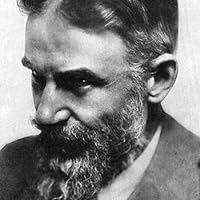American Quotes
Quotes tagged as "american"
Showing 1-30 of 384

“In the present case it is a little inaccurate to say I hate everything. I am strongly in favor of common sense, common honesty and common decency. This makes me forever ineligible to any public office of trust or profit in the Republic. But I do not repine, for I am a subject of it only by force of arms.”
―
―

“All children should be taught to unconditionally accept, approve, admire, appreciate, forgive, trust, and ultimately, love their own person.”
―
―
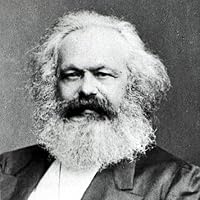
“...[G]reat progress was evident in the last Congress of the American 'Labour Union' in that among other things, it treated working women with complete equality. While in this respect the English, and still more the gallant French, are burdened with a spirit of narrow-mindedness. Anybody who knows anything of history knows that great social changes are impossible without the feminine ferment. Social progress can be measured exactly by the social position of the fair sex (the ugly ones included).”
― Selected Letters: The Personal Correspondence 1844-1877
― Selected Letters: The Personal Correspondence 1844-1877
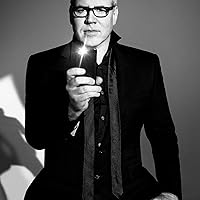
“It strikes me profoundly that the world is more often than not a bad and cruel place.”
― American Psycho
― American Psycho

“He will know from and early age that failure is not disgrace. It's just a pitch that you missed, and you'd better get ready for the next one. The next one might be the shot heard round the world. My son and I are Americans, we prepare for glory by failing until we don't.”
― American on Purpose: The Improbable Adventures of an Unlikely Patriot
― American on Purpose: The Improbable Adventures of an Unlikely Patriot

“Do you know what Ed Gein said about women?"
[...]
"'When I see a pretty girl walking down the street I think two things. One part of me wants to take her out and talk to her and be real nice and sweet and treat her right.'" I stop finish my J&B in one swallow.
"What does the other part of him think?" Hamlin asks tentatively.
"What her head would look like on a stick”
― American Psycho
[...]
"'When I see a pretty girl walking down the street I think two things. One part of me wants to take her out and talk to her and be real nice and sweet and treat her right.'" I stop finish my J&B in one swallow.
"What does the other part of him think?" Hamlin asks tentatively.
"What her head would look like on a stick”
― American Psycho

“Paine suffered then, as now he suffers not so much because of what he wrote as from the misinterpretations of others...
He disbelieved the ancient myths and miracles taught by established creeds. But the attacks on those creeds - or on persons devoted to them - have served to darken his memory, casting a shadow across the closing years of his life.
When Theodore Roosevelt termed Tom Paine a 'dirty little atheist' he surely spoke from lack of understanding. It was a stricture, an inaccurate charge of the sort that has dimmed the greatness of this eminent American. But the true measure of his stature will yet be appreciated. The torch which he handed on will not be extinguished. If Paine had ceased his writings with 'The Rights of Man' he would have been hailed today as one of the two or three outstanding figures of the Revolution. But 'The Age of Reason' cost him glory at the hands of his countrymen - a greater loss to them than to Tom Paine.
I was always interested in Paine the inventor. He conceived and designed the iron bridge and the hollow candle; the principle of the modern central draught burner. The man had a sort of universal genius. He was interested in a diversity of things; but his special creed, his first thought, was liberty.
Traducers have said that he spent his last days drinking in pothouses. They have pictured him as a wicked old man coming to a sorry end. But I am persuaded that Paine must have looked with magnanimity and sorrow on the attacks of his countrymen. That those attacks have continued down to our day, with scarcely any abatement, is an indication of how strong prejudice, when once aroused, may become. It has been a custom in some quarters to hold up Paine as an example of everything bad.
The memory of Tom Paine will outlive all this. No man who helped to lay the foundations of our liberty - who stepped forth as the champion of so difficult a cause - can be permanently obscured by such attacks. Tom Paine should be read by his countrymen. I commend his fame to their hands.
{The Philosophy of Paine, June 7, 1925}”
― Diary and Sundry Observations of Thomas Alva Edison
He disbelieved the ancient myths and miracles taught by established creeds. But the attacks on those creeds - or on persons devoted to them - have served to darken his memory, casting a shadow across the closing years of his life.
When Theodore Roosevelt termed Tom Paine a 'dirty little atheist' he surely spoke from lack of understanding. It was a stricture, an inaccurate charge of the sort that has dimmed the greatness of this eminent American. But the true measure of his stature will yet be appreciated. The torch which he handed on will not be extinguished. If Paine had ceased his writings with 'The Rights of Man' he would have been hailed today as one of the two or three outstanding figures of the Revolution. But 'The Age of Reason' cost him glory at the hands of his countrymen - a greater loss to them than to Tom Paine.
I was always interested in Paine the inventor. He conceived and designed the iron bridge and the hollow candle; the principle of the modern central draught burner. The man had a sort of universal genius. He was interested in a diversity of things; but his special creed, his first thought, was liberty.
Traducers have said that he spent his last days drinking in pothouses. They have pictured him as a wicked old man coming to a sorry end. But I am persuaded that Paine must have looked with magnanimity and sorrow on the attacks of his countrymen. That those attacks have continued down to our day, with scarcely any abatement, is an indication of how strong prejudice, when once aroused, may become. It has been a custom in some quarters to hold up Paine as an example of everything bad.
The memory of Tom Paine will outlive all this. No man who helped to lay the foundations of our liberty - who stepped forth as the champion of so difficult a cause - can be permanently obscured by such attacks. Tom Paine should be read by his countrymen. I commend his fame to their hands.
{The Philosophy of Paine, June 7, 1925}”
― Diary and Sundry Observations of Thomas Alva Edison

“The joke was that President Bush only declared war when Starbucks was hit. You can mess with the U.N. all you want, but when you start interfering with the right to get caffeinated, someone has to pay.”
― American Sniper: The Autobiography of the Most Lethal Sniper in U.S. Military History
― American Sniper: The Autobiography of the Most Lethal Sniper in U.S. Military History

“After the Egyptian and Indian, the Greek and Roman, the Teuton and Mongolian, the Negro is a sort of seventh son, born with a veil, and gifted with second-sight in this American world,—a world which yields him no true self-consciousness, but only lets him see himself through the revelation of the other world. It is a peculiar sensation, this double-consciousness, this sense of always looking at one’s self through the eyes of others, of measuring one by the tape of a world that looks on in amused contempt and pity. One ever feels his two-ness,—an American, a Negro... two thoughts, two unreconciled strivings; two warring ideals in one dark body, whose dogged strength alone keeps it from being torn asunder.
The history of the American Negro is the history of this strife, — this longing to attain self-conscious manhood, to merge his double self into a better and truer self.”
― The Souls of Black Folk
The history of the American Negro is the history of this strife, — this longing to attain self-conscious manhood, to merge his double self into a better and truer self.”
― The Souls of Black Folk

“I felt lethal, on the verge of frenzy. My nightly bloodlust overflowed into my days and I had to leave the city. My mask of sanity was a victim of impending slippage. This was the bone season for me and I needed a vacation.”
― American Psycho
― American Psycho

“The seals stupidly dive off rocks into swirling black water, barking mindlessly. The zookeepers feed them dead fish. A crowd gathers around the tank, mostly adults, a few accompanied by children. On the seals' tank a plaque warns: COINS CAN KILL——IF SWALLOWED, COINS CAN LODGE IN AN ANIMAL'S STOMACH AND CAUSE ULCERS, INFECTIONS AND DEATH. DO NOT THROW COINS IN THE POOL. So what do I do? Toss a handful of change into the tank when none of the zookeepers are watching. It's not the seals I hate——it's the audience's enjoyment of them that bothers me.”
― American Psycho
― American Psycho

“When you've nothing else construct ceremonies out of the air and breathe upon them.”
― The Road
― The Road

“But she has gathered that Americans, in spite of their public declarations of affection, in spite of their miniskirts and bikinis, in spite of their hand-holding on the street and lying on top of each other on the Cambridge Common, prefer their privacy.”
― The Namesake
― The Namesake
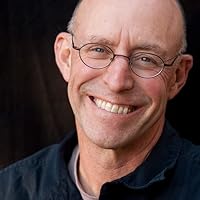
“Much of our food system depends on our not knowing much about it, beyond the price disclosed by the checkout scanner; cheapness and ignorance are mutually reinforcing. And it's a short way from not knowing who's at the other end of your food chain to not caring–to the carelessness of both producers and consumers that characterizes our economy today. Of course, the global economy couldn't very well function without this wall of ignorance and the indifference it breeds. This is why the American food industry and its international counterparts fight to keep their products from telling even the simplest stories–"dolphin safe," "humanely slaughtered," etc.–about how they were produced. The more knowledge people have about the way their food is produced, the more likely it is that their values–and not just "value"–will inform their purchasing decisions.”
― The Omnivore's Dilemma: A Natural History of Four Meals
― The Omnivore's Dilemma: A Natural History of Four Meals
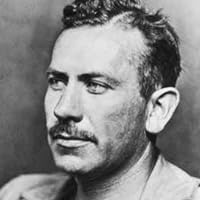
“American cities are like badger holes, ringed with trash--all of them--surrounded by piles of wrecked and rusting automobiles, and almost smothered in rubbish. Everything we use comes in boxes, cartons, bins, the so-called packaging we love so much. The mountain of things we throw away are much greater than the things we use.”
― Travels with Charley: In Search of America
― Travels with Charley: In Search of America

“It's certainly not too late to change to the winning side. But you know, you also have the freedom to stay just where you are. That's what it means to be an American. That's the miracle of America. Freedom to believe means the freedom to believe the wrong thing, after all. Just as freedom of speech gives you the right to stay silent.”
― American Gods
― American Gods

“People are invariably surprised to hear me say I am both an atheist and an agnostic, as if this somehow weakens my certainty. I usually reply with a question like, 'Well, are you a Republican or an American?' The two words serve different concepts and are not mutually exclusive. Agnosticism addresses knowledge; atheism addresses belief. The agnostic says, 'I don't have a knowledge that God exists.' The atheist says, 'I don't have a belief that God exists.' You can say both things at the same time. Some agnostics are atheistic and some are theistic.”
― Godless: How an Evangelical Preacher Became One of America's Leading Atheists
― Godless: How an Evangelical Preacher Became One of America's Leading Atheists

“The white folks like for us to be religious, then they can do what they want to with us.”
― Native Son
― Native Son

“Does it matter how long they were together that night? To lovers, an hour can last a century. But even for lovers, every hour ends.”
― American Vampire, Vol. 1
― American Vampire, Vol. 1

“Writing is a kind of revenge against circumstance too: bad luck, loss, pain. If you make something out of it, then you've no longer been bested by these events.”
―
―

“The American really loves nothing but his automobile: not his wife his child nor his country nor even his bank-account first (in fact he doesn't really love that bank-account nearly as much as foreigners like to think because he will spend almost any or all of it for almost anything provided it is valueless enough) but his motor-car. Because the automobile has become our national sex symbol. We cannot really enjoy anything unless we can go up an alley for it. Yet our whole background and raising and training forbids the sub rosa and surreptitious. So we have to divorce our wife today in order to remove from our mistress the odium of mistress in order to divorce our wife tomorrow in order to remove from our mistress and so on. As a result of which the American woman has become cold and and undersexed; she has projected her libido on to the automobile not only because its glitter and gadgets and mobility pander to her vanity and incapacity (because of the dress decreed upon her by the national retailers association) to walk but because it will not maul her and tousle her, get her all sweaty and disarranged. So in order to capture and master anything at all of her anymore the American man has got to make that car his own. Which is why let him live in a rented rathole though he must he will not only own one but renew it each year in pristine virginity, lending it to no one, letting no other hand ever know the last secret forever chaste forever wanton intimacy of its pedals and levers, having nowhere to go in it himself and even if he did he would not go where scratch or blemish might deface it, spending all Sunday morning washing and polishing and waxing it because in doing that he is caressing the body of the woman who has long since now denied him her bed.”
― Intruder in the Dust
― Intruder in the Dust

“- If I tell you, will you let met go?
- You bet, partner. [...]
- You promised!
- Nope. I said "you bet." You did ... and you lost.”
― American Vampire, Vol. 1
- You bet, partner. [...]
- You promised!
- Nope. I said "you bet." You did ... and you lost.”
― American Vampire, Vol. 1

“But nobody wanted to speak on the true disposition of the world. And no one wanted to hear it...
The whites came to this land for a fresh start and to escape the tyranny of their masters, just as the Freeman had fled theirs. But the ideals they held up for themselves, they denied others. Cora had heard Michael recite the Declaration of Independence back on the Randall plantation many times, his voice drifting through the village like an angry phantom. She didn't understand the words, most of them at any rate, but created equal was not lost on her. The white men who wrote it didn't understand it either, if all men did not truly mean all men. Not if they snatched away what belonged to other people, whether it was something you could hold in your hand, like dirt, or something you could not, like freedom.”
― The Underground Railroad
The whites came to this land for a fresh start and to escape the tyranny of their masters, just as the Freeman had fled theirs. But the ideals they held up for themselves, they denied others. Cora had heard Michael recite the Declaration of Independence back on the Randall plantation many times, his voice drifting through the village like an angry phantom. She didn't understand the words, most of them at any rate, but created equal was not lost on her. The white men who wrote it didn't understand it either, if all men did not truly mean all men. Not if they snatched away what belonged to other people, whether it was something you could hold in your hand, like dirt, or something you could not, like freedom.”
― The Underground Railroad

“Buffett was a billionaire who drove his own car, did his own taxes, and still lived in a home he had bought in 1958 for $31,500. He seemed to answer to a deeply rooted, distinctly American mythology, in which decency and common sense triumphed over cosmopolitan guile, and in which an idealized past held firm against a rootless and too hurriedly changing present.”
―
―

“The 21st chapter gives the novel the quality of genuine fiction, an art founded on the principle that human beings change.
----- "A Clockwork Orange Resucked" intro to first full American version 1986”
― A Clockwork Orange
----- "A Clockwork Orange Resucked" intro to first full American version 1986”
― A Clockwork Orange
All Quotes
|
My Quotes
|
Add A Quote
Browse By Tag
- Love Quotes 97k
- Life Quotes 75.5k
- Inspirational Quotes 72.5k
- Humor Quotes 43.5k
- Philosophy Quotes 29.5k
- Inspirational Quotes Quotes 27k
- God Quotes 26k
- Truth Quotes 23.5k
- Wisdom Quotes 23.5k
- Romance Quotes 23k
- Poetry Quotes 22k
- Death Quotes 20k
- Happiness Quotes 18.5k
- Life Lessons Quotes 18.5k
- Hope Quotes 18k
- Faith Quotes 18k
- Quotes Quotes 16.5k
- Inspiration Quotes 16.5k
- Spirituality Quotes 15k
- Religion Quotes 15k
- Motivational Quotes 15k
- Writing Quotes 14.5k
- Relationships Quotes 14.5k
- Life Quotes Quotes 14k
- Love Quotes Quotes 13.5k
- Success Quotes 13.5k
- Time Quotes 12.5k
- Motivation Quotes 12k
- Science Quotes 11.5k
- Knowledge Quotes 11k



